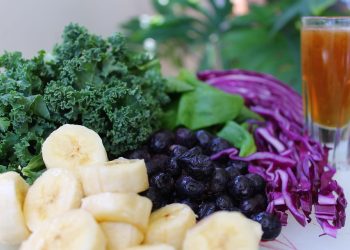Losing weight is a goal for many, but achieving sustainable weight loss – maintaining a healthy weight over the long term – requires more than just a quick fix. It’s about adopting a holistic approach that encompasses healthy eating habits, an active lifestyle, and a positive mindset. This article delves into the principles of sustainable weight loss, focusing on how to eat well and live well to achieve lasting results.
Understanding Sustainable Weight Loss
Sustainable weight loss is about making gradual, long-term changes to your lifestyle rather than resorting to drastic diets or extreme exercise regimes. The key is to create habits that you can maintain for the rest of your life.
Why Diets Often Fail
Many popular diets promise rapid weight loss, but they often lead to a “yo-yo” effect – losing weight only to regain it later. This is because:
- They are often restrictive: Eliminating entire food groups can be difficult to sustain long-term.
- They don’t address underlying habits: Without changing your relationship with food, you’re likely to revert to old patterns.
- They can be detrimental to your health: Some diets lack essential nutrients or promote unhealthy eating behaviors.
The Sustainable Approach: A Lifestyle Change
Sustainable weight loss focuses on creating a healthy lifestyle that incorporates:
- Balanced nutrition: Eating a variety of nutrient-rich foods in appropriate portions.
- Regular physical activity: Engaging in activities you enjoy and can sustain over time.
- Behavioral changes: Identifying and modifying unhealthy habits.
- Mindful eating: Paying attention to your body’s hunger and fullness cues.
Eating Well for Sustainable Weight Loss
Nutrition plays a vital role in weight loss. It’s not about deprivation but about making smarter choices that fuel your body and promote a healthy weight.
Focus on Whole, Unprocessed Foods
Prioritize whole, unprocessed foods like fruits, vegetables, lean proteins, and whole grains. These foods are naturally lower in calories and higher in nutrients.
- Fruits and Vegetables: Packed with vitamins, minerals, and fiber, fruits and vegetables help you feel full and satisfied. Aim for at least five servings a day.
- Lean Proteins: Protein is essential for building and repairing tissues. Choose lean sources like chicken breast, fish, beans, and lentils.
- Whole Grains: Whole grains provide sustained energy and fiber. Opt for brown rice, quinoa, oats, and whole-wheat bread over refined grains.
Portion Control: The Key to Moderation
Even healthy foods can contribute to weight gain if eaten in excess. Be mindful of portion sizes to control your calorie intake.
- Use smaller plates and bowls: This can trick your mind into feeling satisfied with less food.
- Measure your portions: Use measuring cups and spoons to ensure you’re not overeating.
- Pay attention to serving sizes on food labels: Be aware of how many calories and nutrients are in a single serving.
Hydration: Drink Plenty of Water
Water is essential for overall health and can also aid in weight loss. It helps you feel full, boosts metabolism, and aids in digestion.
- Drink water before meals: This can help you eat less.
- Carry a water bottle with you: Sip on water throughout the day.
- Choose water over sugary drinks: Soda, juice, and sweetened beverages are high in calories and offer little nutritional value.
Limit Added Sugars, Processed Foods, and Unhealthy Fats
These foods are often high in calories, low in nutrients, and can contribute to weight gain.
- Added Sugars: Found in sugary drinks, candy, and processed foods. Limit your intake as much as possible.
- Processed Foods: Often high in sodium, unhealthy fats, and added sugars. Cook meals at home using fresh ingredients whenever possible.
- Unhealthy Fats: Saturated and trans fats can raise cholesterol levels and increase the risk of heart disease. Choose healthy fats like olive oil, avocados, and nuts.
Mindful Eating: Tune In to Your Body
Mindful eating involves paying attention to your body’s hunger and fullness cues, as well as the taste, texture, and aroma of your food.
- Eat slowly and savor each bite: This allows your body to register fullness.
- Pay attention to your hunger cues: Eat when you’re hungry and stop when you’re satisfied.
- Avoid distractions while eating: Turn off the TV and put away your phone.
- Listen to your body’s signals: Differentiate between physical hunger and emotional eating.
Living Well for Sustainable Weight Loss
Beyond healthy eating, an active lifestyle and positive mindset are crucial for sustainable weight loss.
Regular Physical Activity: Find What You Enjoy
Exercise helps you burn calories, build muscle mass, and improve your overall health. Aim for at least 150 minutes of moderate-intensity exercise or 75 minutes of vigorous-intensity exercise per week.
- Choose activities you enjoy: This will make it more likely that you’ll stick with them.
- Incorporate movement into your daily routine: Take the stairs instead of the elevator, walk during your lunch break, or bike to work.
- Find an exercise buddy: Working out with a friend can help you stay motivated.
- Don’t be afraid to try new things: Experiment with different types of exercise until you find something you love. Consider walking, swimming, dancing, cycling, or strength training.
Stress Management: Prioritize Self-Care
Chronic stress can lead to emotional eating and weight gain. Find healthy ways to manage stress, such as yoga, meditation, or spending time in nature.
- Practice relaxation techniques: Deep breathing, meditation, and progressive muscle relaxation can help reduce stress.
- Get enough sleep: Aim for 7-8 hours of sleep per night.
- Spend time with loved ones: Social support can help buffer the effects of stress.
- Engage in hobbies you enjoy: Make time for activities that bring you joy and relaxation.
Adequate Sleep: Essential for Weight Management
Lack of sleep can disrupt hormones that regulate appetite, leading to increased cravings and weight gain. Aim for 7-8 hours of quality sleep each night.
- Establish a regular sleep schedule: Go to bed and wake up at the same time each day, even on weekends.
- Create a relaxing bedtime routine: Take a warm bath, read a book, or listen to calming music.
- Make sure your bedroom is dark, quiet, and cool: These conditions promote restful sleep.
- Avoid caffeine and alcohol before bed: These substances can interfere with sleep.
Behavioral Changes: Break Unhealthy Habits
Identifying and modifying unhealthy habits is crucial for long-term weight loss success. This might involve keeping a food diary, working with a therapist, or joining a support group.
- Identify your triggers: What situations or emotions lead you to overeat?
- Develop coping mechanisms: Find healthy ways to deal with stress, boredom, or sadness.
- Set realistic goals: Don’t try to change too much too quickly.
- Reward yourself for your progress: Celebrate your successes along the way.
Seek Support: Don’t Go It Alone
Having a support system can make a big difference in your weight loss journey. Consider working with a registered dietitian, personal trainer, or therapist. Join a support group or find an accountability partner.
- Registered Dietitian: Can provide personalized nutrition advice and help you create a healthy eating plan.
- Personal Trainer: Can help you develop an exercise program that meets your needs and goals.
- Therapist: Can help you address underlying emotional issues that may be contributing to your weight gain.
- Support Group: Provides a safe and supportive environment where you can share your experiences with others who are going through similar challenges.
Conclusion: A Journey, Not a Destination
Sustainable weight loss is not a quick fix but a journey of self-discovery and lifestyle transformation. By focusing on eating well, living well, and making gradual, sustainable changes, you can achieve a healthy weight and maintain it for the long term. Remember to be patient with yourself, celebrate your successes, and learn from your setbacks. With dedication and perseverance, you can create a healthier and happier you.
Frequently Asked Questions (FAQs)
Q: How quickly should I expect to lose weight?
A: A healthy and sustainable rate of weight loss is typically 1-2 pounds per week. Rapid weight loss can be unhealthy and unsustainable.
Q: Do I need to eliminate entire food groups to lose weight?
A: No, it’s not necessary or recommended to eliminate entire food groups. Focus on eating a balanced diet with a variety of nutrient-rich foods.
Q: Is exercise necessary for weight loss?
A: While diet plays a major role, exercise is essential for burning calories, building muscle mass, and improving overall health. It also helps maintain weight loss in the long term.
Q: What if I have a setback and overeat?
A: Don’t beat yourself up about it. It’s normal to have setbacks. Just get back on track with your healthy eating and exercise routine as soon as possible.
Q: How do I deal with cravings?
A: Identify the triggers for your cravings and develop coping mechanisms. Try to distract yourself with a healthy activity, eat a healthy snack, or drink a glass of water.
Q: What are some healthy snack options?
A: Some healthy snack options include fruits, vegetables, nuts, seeds, yogurt, and hard-boiled eggs.
Q: Can I still eat my favorite foods while trying to lose weight?
A: Yes, you can still enjoy your favorite foods in moderation. Practice portion control and choose healthier versions of your favorite dishes when possible.
Q: How important is it to track my calories?
A: Tracking calories can be helpful, especially in the beginning, to get a sense of how many calories you’re consuming. However, it’s not necessary for everyone. Some people prefer to focus on eating whole, unprocessed foods and practicing mindful eating.
Q: What if I’m not seeing results?
A: Be patient and consistent with your efforts. It takes time to see results. If you’re not seeing any progress after a few weeks, consider consulting with a registered dietitian or personal trainer to help you adjust your diet and exercise plan.
Q: Is sustainable weight loss just about physical health?
A: No, sustainable weight loss encompasses both physical and mental well-being. Addressing emotional issues, managing stress, and prioritizing self-care are all crucial aspects of the journey.












